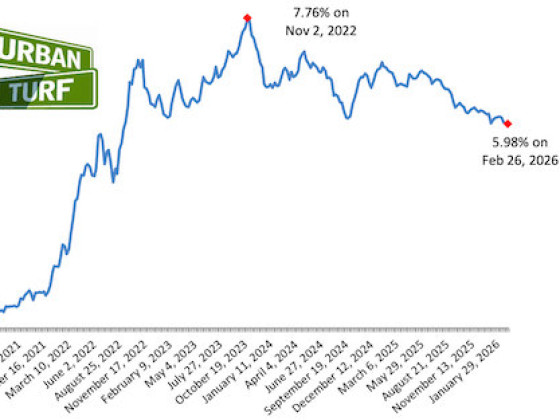 First-Timer Primer: The Ins and Outs of Renter's Insurance
First-Timer Primer: The Ins and Outs of Renter's Insurance
✉️ Want to forward this article? Click here.

This article originally ran on UrbanTurf in 2014.
Last year, UrbanTurf reported that only 34 percent of renters had acquired renter’s insurance, but that number would likely be higher if tenants understood the type of things that it covered.
The insurance can cost as little as $200 or so annually, and it covers things your landlord’s policy doesn’t, according to DC-based tenant-landlord lawyer Emilie Fairbanks. Though your landlord has an insurance policy that covers the building you live in, it very likely doesn’t cover anything else.
“If there’s a fire in the apartment building, a landlord’s insurance is going to cover the structure of the building, but it’s not going to cover your possessions. It’s not going to cover your iPhone, your laptop, your clothes — all of those things that you would have to replace if something happened,” Fairbanks said. “You might be able to sue your landlord if you thought it was their fault, but lots of things that happen aren’t anybody’s fault.”
Renter’s insurance can also cover a few more things that most tenants probably aren’t thinking about. First, renters’ insurance policies can (but don’t always) cover any damage the renter does to the building, so if you leave your stove on and there’s a fire, your landlord can’t sue you for damages. And if, for example, a guest slips and falls at your house and it’s your fault, their injury would be covered under some insurance policies.
story continues below
loading...story continues above
The cost of renters’ insurance will vary based on the number and value of the belongings you want to insure. Special high-value items a renter owns, like jewelry, a valuable musical instrument or an especially pricey bicycle, might cost extra to insure.
Though some landlords require renters to affirm they have renters’ insurance when signing a lease, Fairbanks said landlords can’t evict tenants for failing to comply with that requirement. But if a tenant who doesn’t have renters’ insurance signs a lease saying he or she did, and later sues the landlord for damages, it may be harder for the tenant to win their case.
Small problems can result in big bills for tenants who aren’t insured. Fairbanks said she knew of one person whose window broke when she was out of town for a few days. Then rainwater came into the apartment, destroying her computer and most of her clothes.
“That’s a lot of stuff to pay for, to go out and buy all new clothes,” she said.
In another instance, what firefighters would describe as a “minor” fire in an apartment building ended up causing smoke damage in almost all the buildings’ units.
“Smoke damage, that can be all your electronics and all your clothes,” Fairbanks said. “Anybody who had renters’ insurance, their stuff got cleaned up and dealt with immediately.”
Renters seeking insurance can get it pretty easily — you don’t have to prove you’re a “good” renter, for example — but because the costs are so low, Fairbanks advises shopping around. Tenants may be able to get renters’ insurance tacked on their current policy for a discount.
This article originally published at http://dc.urbanturf.production.logicbrush.com/articles/blog/first-timer_primer_what_is_renters_insurance_and_should_you_have_it/8708.
Most Popular... This Week • Last 30 Days • Ever

The property in Upperville known as Ayrshire Farm sold on Friday.... read »

While it may seem like paying off a long-term mortgage early is a difficult task, it ... read »

The plans for a building that (forgive us) is just trying to fit in in downtown Bethe... read »

A new proposal is on the boards for the former home of the Transportation Security Ad... read »

The developer is under contract to purchase Land Bay C-West, one of the last unbuilt ... read »
- Sandy Lerner's 570-Acre Virginia Farm Sells For $19.8 Million
- A Look at The Ways You Can Pay Off Your Mortgage Early
- Narrow 260-Unit Apartment Building Pitched For Bethesda Moves Forward
- 637 Apartments, 31,000 Square Feet Of Retail: The New Plans for Pentagon City TSA Site
- The Last Piece of Potomac Yard: Mill Creek Residential Pitches 398-Unit Apartment Building
DC Real Estate Guides
Short guides to navigating the DC-area real estate market
We've collected all our helpful guides for buying, selling and renting in and around Washington, DC in one place. Start browsing below!
First-Timer Primers
Intro guides for first-time home buyers
Unique Spaces
Awesome and unusual real estate from across the DC Metro














